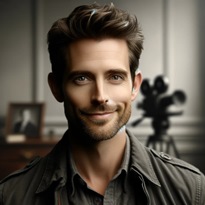
Behind the Scenes: Unveiling Was Man On Fire Based On A True Story?”
In the cinematic universe, some narratives leave a profound impact that lingers long after the end credits roll. “Man on Fire” is one such tale that has intrigued and enticed viewers since its release. In this piece, we will embark on a journey to uncover the truths and the fiction that compose this captivating movie. Is it based on a true story? Let’s unmask “Was Man On Fire Based On A True Story?”.
Delving into the Narrative
Set against the backdrop of Mexico City, “Man on Fire” centers around the life of John Creasy, a former CIA operative enacted by the phenomenal Denzel Washington. The plot thickens as Creasy, serving as a bodyguard for a young girl, Pita Ramos, magnificently played by Dakota Fanning, dives headfirst into a dangerous world when she is captured by a ruthless gang. Driven by revenge, Creasy unfolds a narrative full of adrenaline and chaos as he hunts for Pita’s captors.
Fact and Fiction: Walking the Line
The intense and emotive nature of “Man on Fire” leaves one speculating if it is inspired by true events. While the movie is a riveting work of fiction, it draws some elements from real-life stories, albeit indirectly. The film is a remake of an earlier 1987 movie, which was an adaptation of a novel penned by A.J. Quinnell. While the novel is a fictional work, it is believed to have been inspired by actual bodyguard experiences.
Adaptation: The Art of Storytelling
Adaptation is a fascinating storytelling technique that often blurs the lines between reality and imagination. It borrows from true experiences to breathe life into the characters and make the plot more relatable. In the case of “Man on Fire,” the writers and filmmakers have skillfully interwoven the essence of actual events into a compelling narrative.
Vigilantism: A Critical Lens
A dominant theme in “Man on Fire” is vigilantism, where individuals take justice into their own hands. However, it is important to remember that while the movie unravels the complex dimensions of vigilantism, it remains an illegal and harmful practice in real life. This movie serves as a stark reminder to pursue justice through legal and ethical channels.
The Cultural Canvas
The choice of Mexico City as the movie’s setting significantly influences its narrative, emphasizing the issues of crime and corruption. The cultural nuances and regional challenges offer a more profound understanding of the context in which such stories take shape. While “Man on Fire” is a fictional tale, it draws attention to real social issues that plague communities worldwide.
Applauded Performances
The heart and soul of “Man on Fire” are undeniably its impeccable performances. The remarkable portrayal of complex characters by Denzel Washington and Dakota Fanning won critical acclaim. Washington’s gripping enactment of the troubled John Creasy and Fanning’s innocent portrayal of Pita Ramos add depth and gravity to the narrative.
The Legacy Continues
Over time, “Man on Fire” has etched its place in the hearts of viewers around the globe. Its evocative themes, exhilarating action sequences, and emotional depth have made it a timeless classic. The movie has sparked intriguing conversations on topics like vigilantism, redemption, and the essence of human relationships.
Wrapping Up
What Made Man on Fire So Memorable?
Several factors contributed to Man on Fire‘s success and enduring appeal. Denzel Washington’s powerful performance as John Creasy is at the top of the list. His portrayal of a man who feels he has nothing left to lose, but finds purpose in protecting Pita, strikes a deep emotional chord with audiences. The relationship between Creasy and Pita is central to the film’s emotional impact, with Dakota Fanning delivering a standout performance for such a young actress.
Additionally, Tony Scott’s direction gave the film a unique visual style, blending gritty realism with hyper-stylized action scenes. The use of handheld cameras, quick cuts, and a saturated color palette added to the film’s intensity. The soundtrack, which features music by Harry Gregson-Williams and Nine Inch Nails, further enhances the emotional and action-packed scenes.
In conclusion, Man on Fire remains a highly respected movie in the action-thriller genre. Its combination of deep emotional stakes, visceral action, and memorable performances continues to resonate with audiences. If you haven’t seen it yet, it’s worth watching, whether on Netflix or any other streaming service.
For more stories about real-life inspirations behind movies, check out Istruestory, where we explore movie facts and real-world events behind the greatest films.

I am Jeremy Jahns – Your Cinematic Explorer
Immerse in movie reviews, Hollywood insights, and behind-the-scenes stories.